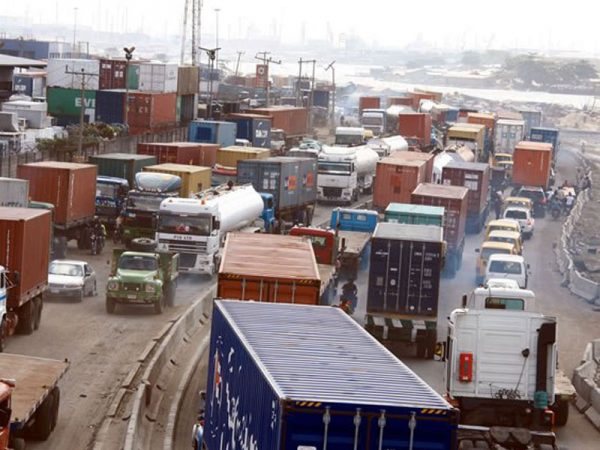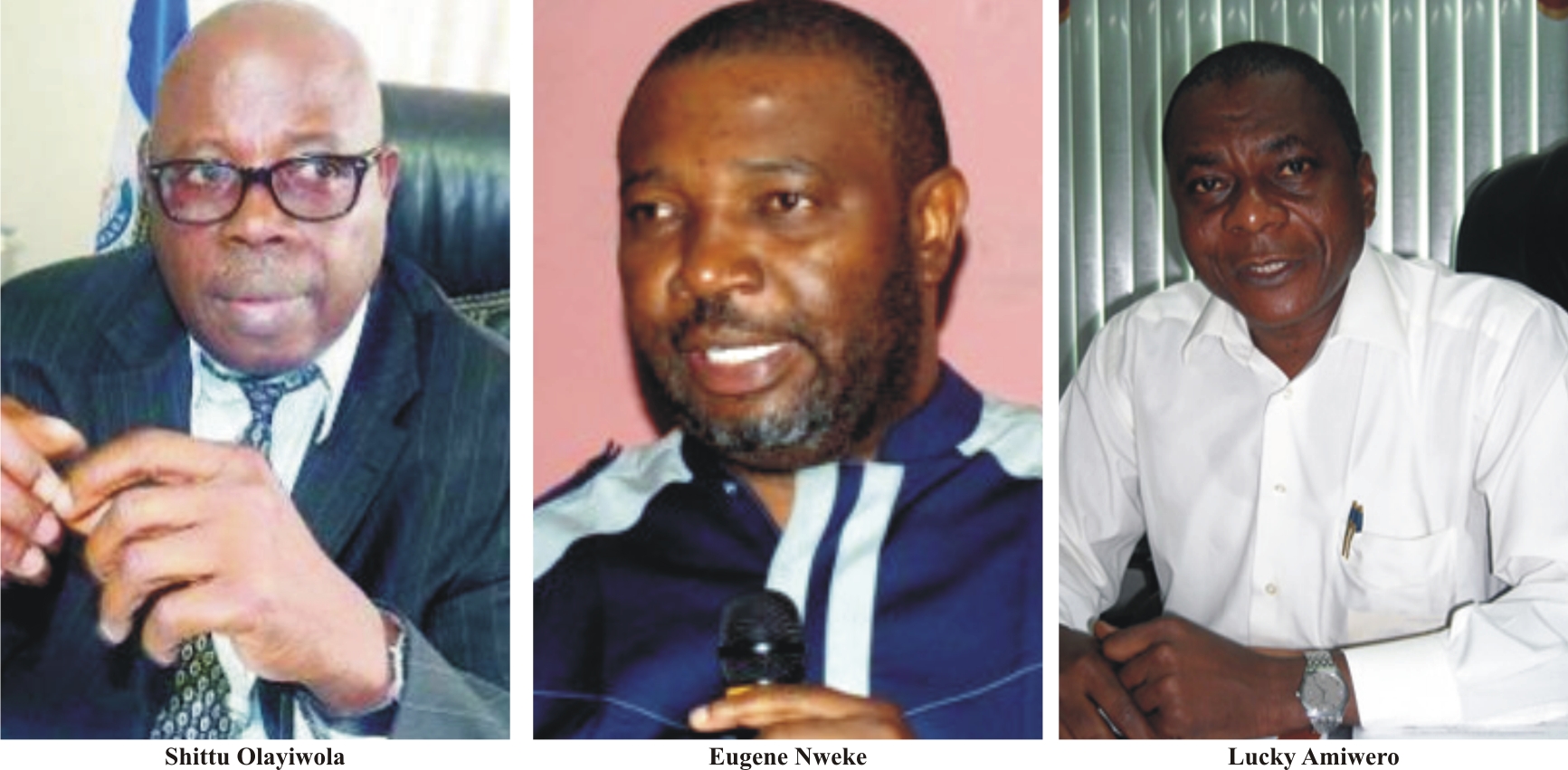Tinubnomics: Nigerians Groan Amid Biting Hardship With No End In Sight

There is no gainsaying that these are tough times for Nigerians as the biting economic hardship is squeezing many households dry.
The combined effects of the removal of fuel subsidy and the floating of the naira both policies announced by the administration of President Bola Ahmed Tinubu have pushed most households to the precipice.
With the hike in the pump price of Premium Motor Spirit (PMS) popularly known as petrol from N185/Liter to about N600/liter and still rising, the cost of transportation has shot through the roof with and many Nigerians forced to trek long distances due to their inability to afford the rising cost, the Tinubnomics effect (the term coined to describe the president’s economic policies) is biting and hits home.
Yinka Awe, in a chat with MMS Plus disclosed that the normal fare from Ikeja where he works to Agege used to be N100, but since the fuel subsidy removal, the bus operators now charge between N300 and N400 depending on peak or off-peak period.
“If I spend over N1000 on transportation from my home to my place of work and back home every day, how will I cope? So, what I do is trek up to Guinness junction and then enter the bus from there to Moshalashi Alhaja, that way, I can save about N200. Besides, trekking is even good for my health” he told this reporter jokingly.
Aside from the rising cost of transportation, the prices of food items and basic household requirements have gone through the roof.
Prices of food items have surged recently. According to Pricepally, a food price tracking platform, shortly before the June 2023 Eid-al-Adha celebrations, tomatoes (3.2 kg) rose to ₦11,000 at Ajah market, a 124% increase from March. Scotch bonnet pepper grew by at least 19% at Jakande, Ajah, and Oyingbo markets, the prices have continued to rise.
At Ajah market, bell pepper (tatashe) and cayenne pepper increased by 38% and 23%, respectively. Meanwhile, between March and June, the price of onions rose by 62% to reach ₦4,500 in Jakande, Ajah, and Oyingbo markets.
Other staple food items like Rice, garri, yam, and vegetable oil also witnessed exponential increases in recent times. For example, before the hike, a cup of rice used to be in the region of N400-N450, now it is going for N750.
A 4 liter paint bucket of white garri which used to be in the region of N600-N750 depending on the area now sells for N1700-N2000.
A bag of short-grain rice which sold for between N28,000 -N30, 000 now sells for about N43,000 and increases daily. A 25-liter keg of vegetable oil which previously sold for about N25,000 now has a market price of N38,000 while a bunch of plantains now sells for between N6,000 and N8,000 as against N3,000 to N4,000. Similarly, a bag of garri which previously carries a price tag of N14,000 or N15,000 now sells for N20,000.
A loaf of family-size bread that normally goes for about N600 now sells for about N1200, while the prices of detergents, toothpaste and a few other household must-haves are gradually slipping out of the reach of the common man.
To underscore the severity of the hardship being experienced by Nigerian, President Tinubu, a few days ago appealed to Nigerians and begged for more time to fix the hardship being experienced.
Tinubu disclosed that he feels the pains of citizens and assured them that the hardships of the moment will give way to a more “prosperous, equitable and inclusive economy”.
“I make my pledge to the country that no decision will be difficult for this administration to take for the prosperity and unity of this country. Economic reforms could be slow. Be patient a little more,” he said.
“I can assure you that I understand the pains you are going through. It is not easy to get out of the monster of over 40 years called fuel subsidy.”
He also disclosed that the policies that are being rolled out by his administration are not meant to punish Nigerians.
“Nigeria is going through some issues and I have sufficiently addressed it in my broadcast and the acting national chairman also spoke about it in his address,” he said.
“We will face it squarely to re-engineer the economy of this country. We must find a way to satisfy the yearnings of the common man and we must ensure that all the policies we roll out work for the common man. Our policies are for the people not to punish the people.”
In a bid to cushion the effect of the hardship on Nigerians, the government has unveiled palliatives measures.
Some of the measures include the expansion of the social register to capture more Nigerians, while the idea of N8,000 cash transfer to 12m households is still being reviewed, some state governments have announced the payment of N10,000 to citizens.
These measures have been described by some Nigerians as a scam and not well thought out. Rather, than handing down the measly amount to Nigerians they opined that the fund earmarked for palliative should be deployed to building a more sustainable environment that all will benefit from.
According to Mrs. Ibitoye; “I am not impressed with this so-called palliative; it has many loopholes and might end up being a scam in the long run. There are no solid measures on the ground to ensure that the targeted poor people will be the sole beneficiaries of palliative.
There is no database to identify these poor people, I heard that the cash transfer will be done via bank transfers, how many of these poor people have bank accounts? Even if some of them have bank accounts, who will they report to if they do not get the transfer? She asked.
She equally blamed the government for not putting the required measures in place before removing the subsidy. She admonished that the money and resources for the so-called palliative should be used to build a strong and stable economy.
“I am not in support of the so-called palliative measures because it is another way of corruption for some government officials and individuals”.
Earlier, the Chairman, United Nigeria Airlines, Professor Obiora Okonkwo in agreement with Mrs Ibitoye faulted the government’s palliative plans while urging the government to set aside N250b from the intended N500b to be shared as palliative to be shared as soft loans for serious-minded business owners to grow their businesses which in turn is guaranteed to generate more jobs, create wealth and in the long run stimulate the economy.
“Giving palliative or giving handouts is never a solution. They should look at how they could also use the saving from that fuel subsidy to strengthen business owners, and the private sector to stimulate the economy, to create wealth in a sector like the aviation sector that has been looking for capitalization.
If they put like N250b aside in the form of a soft loan, not a grant, not free money to be available to the aviation sector for those who may be qualified. What it means is that there will be more aircraft, there will be new routes and then it might also energize and capitalize the industry.
The outcome of this is that there will be more people employed, and there will be more revenue generated by the airline. The government would make more money and then flying overseas will bring about foreign exchange earnings and reduce the pressure on foreign exchange.
By and large, it will help people who don’t have jobs, they will increase revenue, will create wealth, and add to our Gross Domestic Product GDP” he said.
Speaking on how Nigerians can on their own cushion the effect, Muda Yusuf, Founder, Centre for the Promotion of Private Enterprise (CPPE), urged Nigerians to cut their coat according to their cloth and not according to their size as it is previously being said.
“Well, we should just continue to cut our coats according to our clothes. We should drop anything that is not very, very critical in terms of our expenditure. We should prioritize our spending. I think basically that is the whole idea.
And when things are getting tough like this, sometimes you have to create some other opportunities. Because in every challenge there is also an opportunity. So, what should we look at? Imported goods are becoming more and more expensive, so, we should be looking at substitutes that can be produced locally. That would be great. That’s an opportunity.
Now people are finding it difficult to pay school fees abroad and all of that. You have quality institutions in the country in some of these private universities. They should commence aggressive marketing now.
They can tell people, look, rather than go abroad, and we can offer you quality education here. Come to our school. We offer you X, Y, Z. I mean.
So people will have a second thought. Rather than chasing pounds and dollars to pay school fees abroad, you can talk to your children and say please, I don’t think this abroad thing is sustainable. There’s quality education here too. The same thing with hospitals. We still have some medical centers of excellence too” he disclosed.
With many homes preparing for the beginning of the new academic session and the payment of school fees and all the other sundry expenses that accompanies it, it is left to be seen if the “poor will be allowed to breath” as there are no end in sight to the current hardship being faced by the common man.







